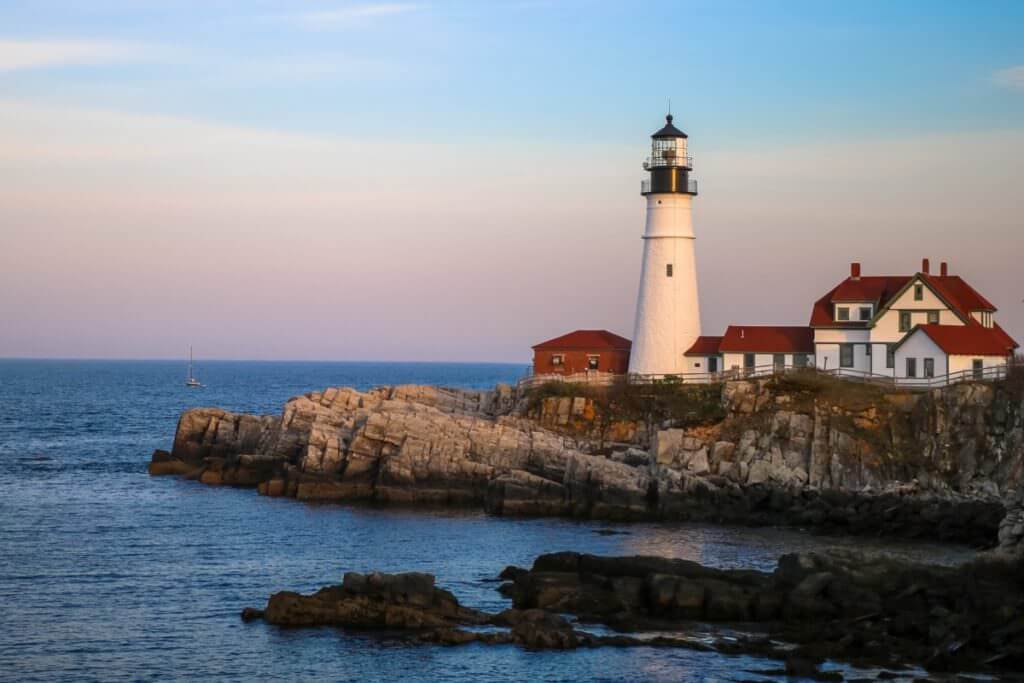Federal mental health grants canceled because Maine has legal marijuana
STATEWIDE (Sun Journal) -- Because Maine allows the medical use of marijuana by students, the federal government is cutting off $3.3 million in already approved funding to support mental health programs for youngsters.
It isn’t clear whether the new federal policy may impact other grants received by the state.
The state won a five-year federal grant in 2018 that provided $1.1 million annually for a program called Maine-AWARE to assist in bolstering the social service infrastructure to support student mental health in three districts across the state.
Maine received the money for the first two years, but recently learned it won’t get any more due to a policy change in Washington that cuts off states that allow students access to medical marijuana.
Pender Makin, the state commissioner of education, said in a May 6 email to a local superintendent that “a new requirement” on the federal level cut off the funding in its third year “because of our state’s medical marijuana law, which requires schools to allow students who have written certification from their medical provider indicating their need for medical marijuana to receive such treatment while at school.”
Makin said Maine has a statutory obligation to permit students to use medical marijuana if they possess the necessary prescription for it.
The federal Department of Health and Human Services, which handles the Advancing Wellness and Resiliency in Education grant, also known as AWARE, did not respond to requests for comment Thursday or Friday.
Kelli Deveaux, director of communications for the state Department of Education, said Friday that officials don’t know yet if other grants may be impacted “by this new and arbitrary requirement.”
The loss of federal aid is a setback for a state that is trying to cope with an alarming amount of mental health issues among students.
A research letter published a year ago in JAMA Pediatrics found that Maine had the highest rate in the country of children diagnosed with depression, anxiety or attention deficit disorder.
More than one in four Maine children ages 6 to 17 had at least one of the disorders, the study found. About half of them did not receive needed treatment or counseling from a mental health professional, the researchers found.
The federal Health and Human Services division that canceled the grant, the Substance Abuse and Mental Health Services Administration, said the program it had funded focuses on “partnerships and collaboration between state and local systems to promote the healthy development of school-aged youth and prevent youth violence.”
RSU 10 Superintendent Deb Alden in Rumford, whose district got $200,000 in each of the past two years through the grant, called the abrupt end to the program “just really disheartening.”
The decision to clamp down on states that allow the use of marijuana appears to be part of a larger effort by President Donald Trump’s administration to punish states that haven’t toed the line on the federal government’s long-standing policy of treating marijuana as an illegal drug. It may impact grants related to the opioid crisis as well.
The substance agency, in many presentations, has made clear that it considers marijuana a dangerous drug that can lead to poor school performance, increased risk of motor vehicle accidents, cognitive impairment and other problems.
There are at least 33 states that allow medical marijuana. Following a 2016 state referendum where voters chose to legalize the drug, Maine is one of about a dozen that allow recreational use of marijuana as well, though not by minors.
Makin said in her email to Alden that Maine’s medical marijuana law allows people to receive a medical certification for any diagnosis if a medical provider says it is “likely to have a therapeutic or palliative benefit.”
Another state law provides that students who have a medical marijuana card cannot be denied the right to attend school solely because they need medical marijuana, in a nonsmokable form, while they’re at school.
“Because of these provisions in Maine law, we are ineligible for participation in the AWARE grant program” after Sept. 30, she wrote, when the new federal fiscal year begins.
The move means that three districts who received funding through the project – RSU 10 in Rumford, RSU 20 in Searsport, and the Calais School Department – won’t receive any more of the federal cash for the third, fourth and fifth years of their pilot programs.
According to the state, the primary goals of the Maine-AWARE initiative are to ensure all students have access to evidence-based social emotional learning strategies, positive behavioral interventions and screenings.
It also aims to identify students and families with increased risk of “negative academic and behavioral outcomes” with targeted interventions, team-based school and community supports and mental health screening.
Clinical interventions for some young people and their families who are “experiencing serious mental or behavioral disorders” is also part of the effort.
Whether the programs in the three districts can survive without federal funds is uncertain.
STATEWIDE (Sun Journal) -- Because Maine allows the medical use of marijuana by students, the federal government is cutting off $3.3 million in already approved funding to support mental health programs for youngsters.
It isn’t clear whether the new federal policy may impact other grants received by the state.
The state won a five-year federal grant in 2018 that provided $1.1 million annually for a program called Maine-AWARE to assist in bolstering the social service infrastructure to support student mental health in three districts across the state.
Maine received the money for the first two years, but recently learned it won’t get any more due to a policy change in Washington that cuts off states that allow students access to medical marijuana.
Pender Makin, the state commissioner of education, said in a May 6 email to a local superintendent that “a new requirement” on the federal level cut off the funding in its third year “because of our state’s medical marijuana law, which requires schools to allow students who have written certification from their medical provider indicating their need for medical marijuana to receive such treatment while at school.”
Makin said Maine has a statutory obligation to permit students to use medical marijuana if they possess the necessary prescription for it.
The federal Department of Health and Human Services, which handles the Advancing Wellness and Resiliency in Education grant, also known as AWARE, did not respond to requests for comment Thursday or Friday.
Kelli Deveaux, director of communications for the state Department of Education, said Friday that officials don’t know yet if other grants may be impacted “by this new and arbitrary requirement.”
The loss of federal aid is a setback for a state that is trying to cope with an alarming amount of mental health issues among students.
A research letter published a year ago in JAMA Pediatrics found that Maine had the highest rate in the country of children diagnosed with depression, anxiety or attention deficit disorder.
More than one in four Maine children ages 6 to 17 had at least one of the disorders, the study found. About half of them did not receive needed treatment or counseling from a mental health professional, the researchers found.
The federal Health and Human Services division that canceled the grant, the Substance Abuse and Mental Health Services Administration, said the program it had funded focuses on “partnerships and collaboration between state and local systems to promote the healthy development of school-aged youth and prevent youth violence.”
RSU 10 Superintendent Deb Alden in Rumford, whose district got $200,000 in each of the past two years through the grant, called the abrupt end to the program “just really disheartening.”
The decision to clamp down on states that allow the use of marijuana appears to be part of a larger effort by President Donald Trump’s administration to punish states that haven’t toed the line on the federal government’s long-standing policy of treating marijuana as an illegal drug. It may impact grants related to the opioid crisis as well.
The substance agency, in many presentations, has made clear that it considers marijuana a dangerous drug that can lead to poor school performance, increased risk of motor vehicle accidents, cognitive impairment and other problems.
There are at least 33 states that allow medical marijuana. Following a 2016 state referendum where voters chose to legalize the drug, Maine is one of about a dozen that allow recreational use of marijuana as well, though not by minors.
Makin said in her email to Alden that Maine’s medical marijuana law allows people to receive a medical certification for any diagnosis if a medical provider says it is “likely to have a therapeutic or palliative benefit.”
Another state law provides that students who have a medical marijuana card cannot be denied the right to attend school solely because they need medical marijuana, in a nonsmokable form, while they’re at school.
“Because of these provisions in Maine law, we are ineligible for participation in the AWARE grant program” after Sept. 30, she wrote, when the new federal fiscal year begins.
The move means that three districts who received funding through the project – RSU 10 in Rumford, RSU 20 in Searsport, and the Calais School Department – won’t receive any more of the federal cash for the third, fourth and fifth years of their pilot programs.
According to the state, the primary goals of the Maine-AWARE initiative are to ensure all students have access to evidence-based social emotional learning strategies, positive behavioral interventions and screenings.
It also aims to identify students and families with increased risk of “negative academic and behavioral outcomes” with targeted interventions, team-based school and community supports and mental health screening.
Clinical interventions for some young people and their families who are “experiencing serious mental or behavioral disorders” is also part of the effort.
Whether the programs in the three districts can survive without federal funds is uncertain.


 Well done MAINE!
Well done MAINE! 